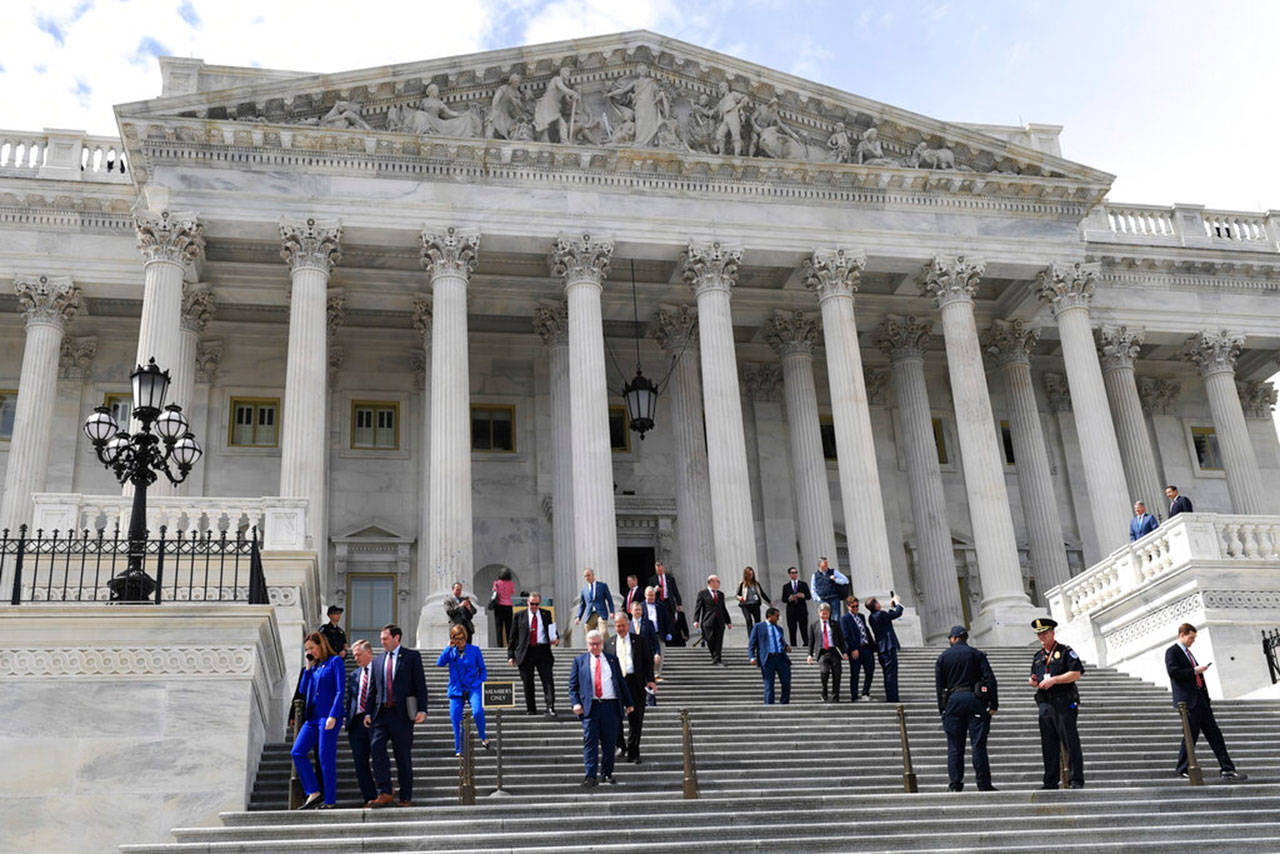By The Herald Editorial Board
Most cancer patients would tell you that they didn’t begin their treatments without some level of fear, reluctance and even anger. And all would tell you they couldn’t wait for the ordeal to end.
The course of medical actions — chemotherapy, radiation, surgery — are literal assaults on the body, but they have to be in order to shrink, kill and remove the cancer and provide some hope for survival.
The steps we are being asked to take now in the face of the COVID-19 coronavirus pandemic — school closures, job losses, shuttered businesses — are all assaults on our daily lives and threaten to be damaging to individuals, families, businesses and our economy.
Which is why it should be seen as encouraging that President Trump has at last listened to his advisers, in particular Drs. Deborah Birx and Anthony Fauci, and extended until at least the end of April the federal guidelines on social distancing, stepping back from the false hope he had offered that we could wrap this up in time for Easter and get back to our normal lives.
Everyone certainly is more than ready to put this behind us. Children are eager to return to school and see their friends again. Workers — whether still employed or not — long to return to jobs and workplaces. Families — even those who have found silver linings afforded by more time with family — are ready for a return to their normal routine.
But a premature return to normalcy would have been to surrender to the cancer that is COVID-19.
This is not a choice between facing a pandemic and saving our economy, because there is no choice. Curtailing the treatment now would have meant ignoring the outbreak and allowing it to metastasize and do far worse damage to our lives and our economy than what is now asked of us, as significant as these actions are. Even the best possible outcome now — with continued vigilance regarding social distancing and orders to stay home for nearly 75 percent of Americans — could still mean millions in the U.S. will become infected and between 100,000 to 200,000 could die.
Abandoning the fight risks far greater horrific statistics.
Facing the pandemic and doing what we need to do, however, does not mean that we can’t — that we shouldn’t — address the hardships that social distancing and stay-home orders have brought.
Last week’s passage by Congress of the $2.2 trillion CARES Act was necessary to sustain families and businesses through this fight and help Americans to protect themselves and their communities.
The wide-ranging financial assistance includes:
Help for individuals and families, including a $1,200 payment to most adults, $500 child tax credits and a bump in unemployment compensation;
Compensation for state and local governments, as well as for public health agencies and hospitals, who have seen supplies and labor depleted; and
Loans, grants and tax breaks for businesses, small and large, that are intended to allow them to continue paying employees and keep the lights on.
U.S. Rep. Rick Larsen, D-2nd District, calling Friday night from Washington, D.C., following the House vote to approve the package, admitted the act is complex, and was assigning staff to brush up on its provisions to handle questions and requests from constituents.
The aid is sorely needed in Washington state. State and local governments here can expect about $2.9 billion in support, of $150 billion set aside for states, he said. And there’s a significant pot of money being administered by the federal Small Business Administration to assist businesses with grants and loans.
While some have been critical of assistance to large corporations — in particular airlines and related industries — Larsen said that loans to airlines will help them continue to pay the salaries of employees and airport workers, support that should help stabilize the industry and assist Boeing and its employees in the state.
U.S. Rep. Suzan DelBene, D-1st District, called the act important in particular for the support it provides to hospitals and health care facilities. But beyond financial support, a greater federal effort is needed to secure access to supplies, especially personal protective equipment, such as gowns and face masks, as well as ventilators, which help patients with respiratory illnesses breathe.
Even as Trump has authorized use of the Defense Protection Act to enlist America’s factories in production of ventilators and other medical equipment, DelBene said she remained concerned over a lack of clear strategy in directing that production.
General Motors now is working with medical supply companies, including ventilator manufacturer Ventech of Bothell, to step up production to as many as 10,000 ventilators a month, but over the weekend there seemed to be confusion over those orders, with the White House appearing to end the partnership on Friday even before it began.
“It’s been frustrating not to have a coordinated response for manufacturing (the protective wear) or on testing and all of the supplies needed,” DelBene said.
Other manufacturing companies, including two in Mukilteo — Terrene and Kass Tailored — have stepped up on their own to begin making masks for medical staff at regional hospitals, including Providence, and have already churned out tens of thousands.
As stunning as a $2.2 trillion package of aid is — even as it represents about half of the normal federal budget for a year and could require difficult decisions in the future regarding higher taxes and spending cuts — more action by Congress like it may be necessary before we begin to see the downhill side of a flattened curve for COVID-19 infections. Additional selfless acts by individuals and businesses will also be necessary.
But it’s not a fight we can now turn from.
Ask a cancer survivor — as difficult as the treatments were to endure — was it worth it?
Talk to us
> Give us your news tips.
> Send us a letter to the editor.
> More Herald contact information.

























